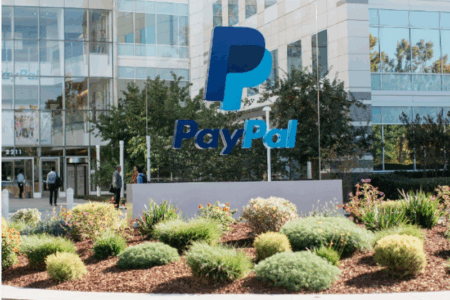United Overseas Bank Ltd (SGX: U11), or UOB, is the second of the three Singapore banks to report its first quarter 2024 (1Q 2024) earnings.
To set the stage, Singapore’s largest bank, DBS Group (SGX: D05), reported a strong set of earnings for 1Q 2024.
We can’t say the same for UOB which reported slightly lower net profit.
That said, CEO Wee Ee Cheong still expects a positive outlook for UOB for 2024 with low single-digit loan growth along with double-digit fee growth.
Here are five highlights from the bank’s latest earnings report.
Net profit dips slightly
UOB’s net interest income dipped by 2% year on year to S$2.4 billion because of a shorter quarter in 1Q 2024 along with a fall in net interest margin (NIM).
Fee income, however, saw a 5% year-on-year increase to S$580 million while other non-interest income inched up 3% year on year to S$581 million.
These two increases helped to offset the weaker net interest margin, allowing UOB’s total income to stay flat year on year at S$3.5 billion for the quarter.
Moving down the line, total expenses rose 2% year on year to S$1.48 billion to support the bank’s franchise and long-term priorities.
As a result, UOB’s net profit dipped to S$1.49 billion, 2% lower than the prior year’s S$1.51 billion.
To be sure, this profit included expenses related to its Citigroup (NYSE: C) acquisition and integration of its consumer banking enterprise in four countries.
Excluding this item, UOB’s core net profit would have been down by just 1% year on year to S$1.57 billion.
The bank’s annualised return on equity clocked in at 14%, slightly higher than the previous quarter’s 13.8% but lower than the previous year’s 14.9%.
Fee income boosted by loan and wealth fees
Digging deeper into UOB’s fee income, there was good performance from loan-related fees which rose from S$237 million a year ago to S$244 million in 1Q 2024.
Wealth fees also saw growth, rising from S$156 million to S$164 million over the same period.
UOB benefitted from an 11% year-on-year rise in its assets under management to S$179 billion comprising privilege banking, privilege reserve, and private banking.
Elsewhere, credit card fees came in at S$90 million, higher than the prior year’s S$81 million but down sharply from the fourth quarter of 2023’s (4Q 2023) S$125 million which was a seasonal high.
Record trading and investment income
Over at the trading and investment side, UOB saw record customer-related treasury income arising from increased retail bond sales coupled with strong hedging demand.
Income from this segment grew 8.4% year on year to S$219 million.
Other investment income logged an encouraging performance, rising by 11.4% year on year to S$303 million from effective trading and liquidity management activities.
Slight loan growth offset by softer NIMs
UOB’s loan book grew by 2% year on year to S$323 billion, with the bulk of the growth coming from Vietnam, North Asia, and the Rest of the World (outside Singapore, Malaysia, Thailand, Indonesia, Vietnam and North Asia).
This strong performance was offset by a 5% year-on-year decline in loans from Malaysia.
On a constant currency basis, the bank’s loans would have increased by 3% year on year.
Meanwhile, UOB’s NIM came in at 2.02% for 1Q 2024, easing from 1Q 2023’s 2.14%.
However, this level of NIM remained constant on a quarter-on-quarter basis because of the bank’s active balance sheet management.
Higher cost-to-income ratio
In line with UOB’s higher level of expenses, its cost-to-income ratio (CIR) came in at 41.9% for 1Q 2024.
The CIR was higher than the previous year’s 40.9% but was down from 4Q 2023’s 43.2% because of the lender’s enlarged income base.
UOB’s asset quality also remained firm with its non-performing loans ratio dipping slightly from 1.6% in 1Q 2023 to 1.5% for the current quarter.
The blue-chip group’s total allowances decreased by 4% year on year to S$163 million because of lower specific allowances.
Get Smart: Citi’s integration on track
UOB has completed its integration of Citigroup’s consumer banking divisions in Malaysia, Indonesia, and Thailand.
Next, it will focus on cross-selling to achieve synergies to grow its business further.
Mr. Wee remarked that the integration in Vietnam will be completed by 2025.
UOB is confident of achieving total income growth for 2024 with CIR hovering around 41% to 42%.
The best gift a responsible parent can give their child is a secure, comfortable financial future. And we found that dividend investing is one of the easiest and effortless methods to do it. Our latest FREE report reveals how you can do it, plus the 3 SGX stocks you can buy today to start future-proofing your child’s financial future. Click HERE to grab a copy of the guide.
Disclosure: Royston Yang owns shares of DBS Group.





